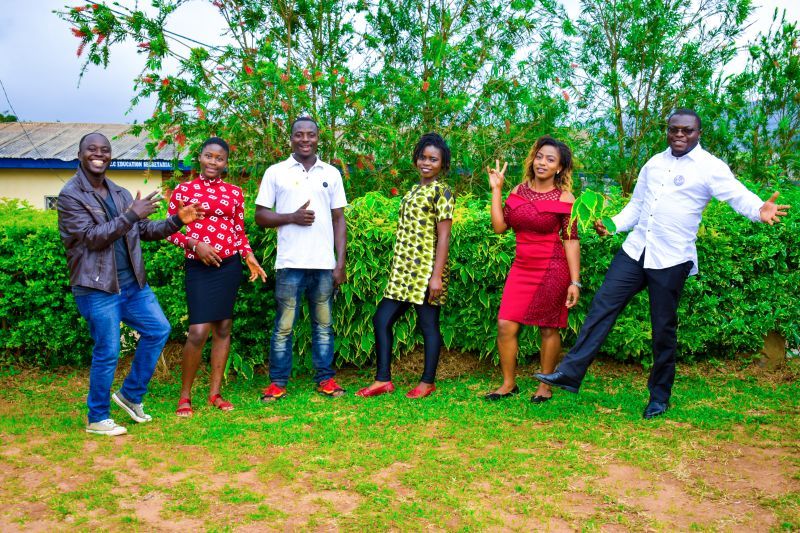How a youth-led cooperative supports organic farming in Cameroon

In June 2020 a group of friends from Bamenda, the north-west region of Cameroon, came up with the idea of a cooperative to develop organic fertilisers for local farmers.
Enhancing Organic Food Cropping Cooperative (ENOFOCC) came to life with the support of the ICA’s Youth Replication Project.
“Having little experience in the cooperative world, we counted on our diverse academic and professional background plus the determination to succeed and the mentorship of the ICA,” recalls Kelvin Akwo, one of the young people behind the initiative.
With funding from the Replication Project, the co-op was able to hire an office space and a manure-composting site. While farmers in the Nkwen community already use animal manure, ENOFOCC wanted to improve its quality, enhancing its handling and transportation.
Within its first nine months of operation, ENOFOCC collected over 257 bags of animal dung mostly from poultry farms, cattle ranches and pig farms, which have been ground or converted into compost. The cooperative is currently made up of 23 members and has hired a manager and an employee responsible for processing it.
One of the main challenges has been obtaining packaging bags at affordable prices. This has led the cooperative to consider importing packaging from neighbouring Nigeria. So far, the manure has been sold to farmers in small quantities for trial purposes.
The ongoing Cameroonian Civil War, also known as the Anglophone Crisis or the Ambazonia War, impacted the work of the cooperative as well, slowing down its implementation and increasing operational costs.
“It is our priority to adopt safety measures,” explains Kelvin.
Covid-19 also affected the cooperative, he adds. “The economic hardship resulting from the health crisis was a heavy blow to businesses.”
Despite these challenges, ENOFOCC has big plans for the future. It hopes to collect and process 350 bags of animal dung this year and maintain an upward trend in the following years. It also intends to diversify its activity by opening an organic potato farm in the Tubah Sub Division of Cameroon’s Northwest Region. The farm will cover around two hectares with a capacity of 62 tons of potatoes per year.
ENOFOCC has also registered under the International Fund for Agricultural Development (IFAD) project in Cameroon as part of the Commodity Value-Chain Development Support Project Phase II (PADFA II), to produce organic onion in the Tubah Basin.
“‘If you want to go fast, go alone. If you want to go far, go together’. This proverb is suitable for the cooperative business model and for a people whose culture is essentially communal,” adds Kelvin. “We, at ENOFOCC Cameroon, strongly believe the cooperative model is suitable for community development in societies like ours. Thank you, Replication Project, for opening our eyes to this beautiful revelation. Thank you, ICA, for your funds and mentorship.”
